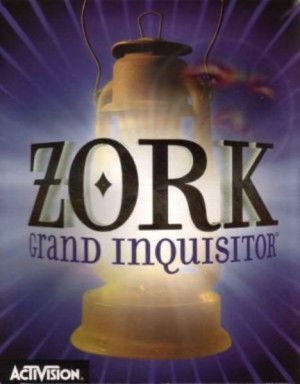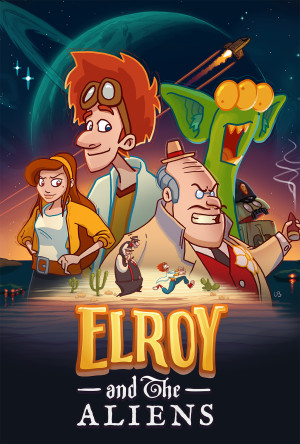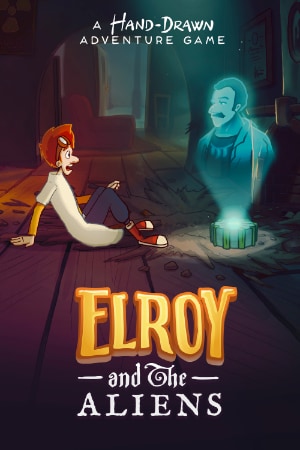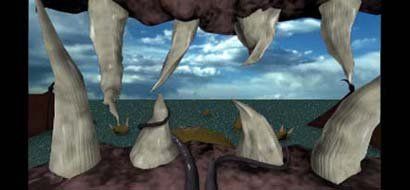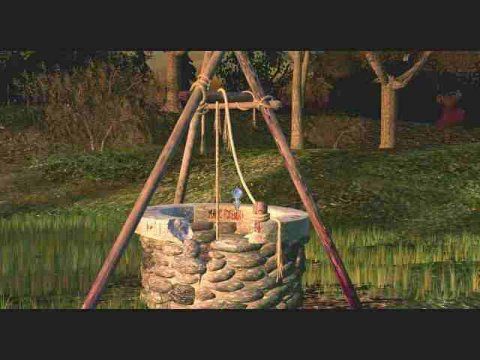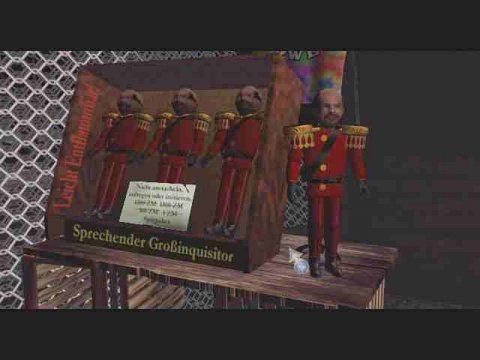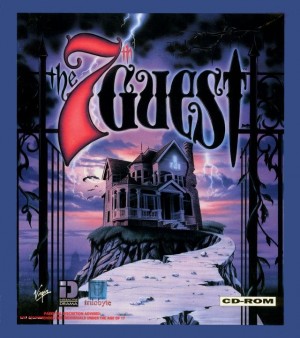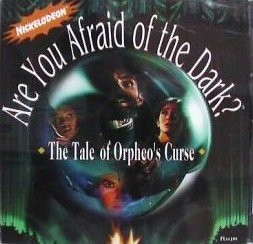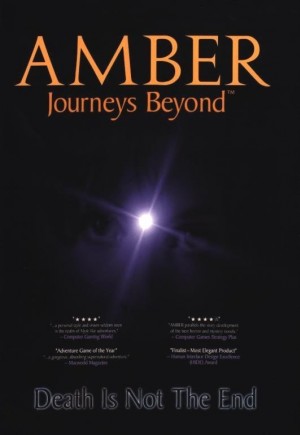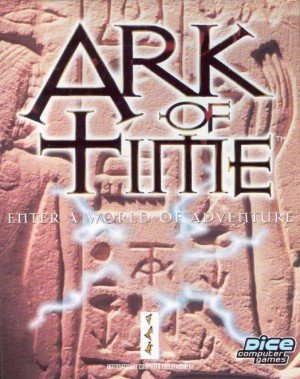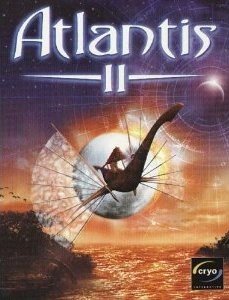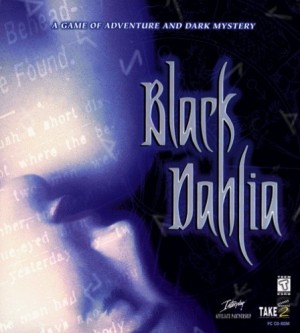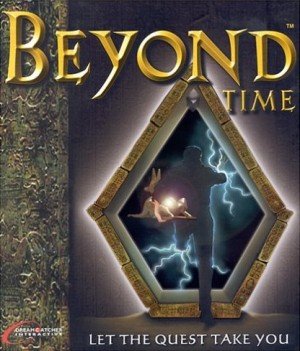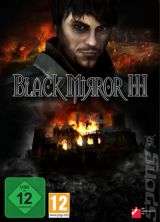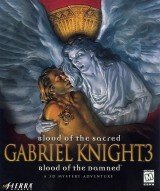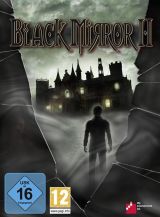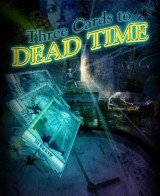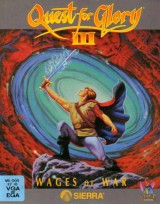Review for Zork Grand Inquisitor
You are sitting in a room. Before you is a computer, outdated by today's standards. To your right is a mouse (the point & clicky kind). To your left are three games: action, formulaic adventure, and Zork Grand Inquisitor.
> Play action game.
You play for 10 minutes, during which time you impale yourself on spikes, get mowed down by gunfire, botch numerous acrobatic, death-defying jumps, and of course, fail to get an acceptable framerate. Final score n/a, as you couldn't even make it to the first save point.
> Shelve action game until hardware upgrade and more caffeine ingested. Play cookie-cutter adventure.
You play for several uninspired hours, enduring pixel hunts, mazes, slider puzzles, 63 futuristic mechanical door locks, linear hard triggers and awful timed sequences. You begin to contemplate killing yourself in frustration, but die of boredom first. Final score: 205 out of 1000.
> Throw adventure dreck away in disgust. Play Zork Grand Inquisitor.
You play for around 15 hours, enjoying superb artistic design, zany humour, memorable characters, creative gameplay, and a terrific variety of fun puzzles. You realize you've played one of the finest adventure games ever made, and conclude they just don't make 'em like they used to. You sob uncontrollably into pillow. Final score: 4.5 out of 5.
> Stop talking in annoying DOS text parser-ese and get on with review.
Oh, whoops, sorry. It's impossible to immerse yourself in the world of Zork and not get a little nutty. Or perhaps a better word would be "Zorky."
As one of the most enduring adventure franchises of all time, the name "Zork" needs no introduction, but a little history will put its familiarity in perspective. The original Zork game was released on various platforms in the early 1980's by Infocom, and went on to spawn several more text adventures in the Zork universe. Graphics were fully implemented in Return to Zork in 1993, followed by the excellent but surprisingly dark Zork Nemesis.
In 1997, Zork Grand Inquisitor became the last title in this venerable series; a fact deeply lamented by long-time fans and new converts alike. But let's not focus on the half-empty part of the glass. The good news is that ZGI returned the series to its oddball Zorkian roots, resulting in arguably the best all-around Zork game, and one of the few adventures that earn the label of "can't-miss."
Normally here I'd launch into a description of the game's story, but that would be selling ZGI short, since even installation is a noteworthy event. None of the standard Windows nonsense for Zork. Instead, we get the Frobozz Electric Installer! It's well worth the read, as Zork veterans will feel immediately at home, and newbies will be laughing anyway, while wondering just what the heck they're getting themselves into. (Pssst... a lot of fun; that's what.)
Through the introductory black and white propaganda film, we learn that Port Foozle has fallen under the dictatorship of the Grand Inquisitor, who has banished magic throughout the land, and pretty much sucked all the joy out of everything with his ridiculously strict laws. Anyone found guilty suffers the penalty of totemization--a double whammy of being squished into a tiny container and made to live forever. In other words, not a pleasant way to spend eternity.
As soon as we gain player control, we're in trouble. Okay, maybe not "as soon as." We are given fair warning over the blaring loudspeaker that "Curfew begins in one second!.... Curfew!!" So now we've got our backs against it. Already we're in violation of the rules, so why not go all out and do whatever we can to topple the Inquisitor and restore magic to the land? As it turns out, that will involve locating the Great Underground Empire (GUE) and finding three special artifacts with a little help from our friends we meet along the way.
Who exactly are we? Why, we're the now-infamous AFGNCAAP, the Ageless, Faceless, Gender-Neutral, Culturally Ambiguous Adventure Person. Yes, this is poking fun at the first-person perspective, where we get to actually play ourselves without committing to an in-game persona. The game is filled with such self-referential humour, ranging from oversized inventory jokes to blatantly obvious clue placement mockery. We're playing a game here. We know it, the game knows it, and the game knows we know it, so it's all about having a good time with it. Welcome to Zork.
Zork Grand Inquisitor plays much like every other first-person, node-movement, point & click adventure. Each node allows 360-degree panning, though not vertical panning that later games have incorporated. Aside from the occasional node disorientation, the interface and controls are intuitive and comfortable. Don't let the format fool you, though. ZGI is anything but a lonely, empty world filled with obtuse mechanical conundrums.
Although the game has relatively few characters onscreen (the running totemization counter would explain that), it actually feels quite alive, and does a great job of hiding its limitations. Through most of the game, you'll be accompanied by former Dungeon Master Dalboz, now trapped inside a lantern. Though tucked away in the inventory, Dalboz frequently provides amusing comments that add to the character of the game. This is a device that was used in the Journeyman Project games, though it's more subdued in Grand Inquisitor. Some of the remarks are truly funny, while others are just quirky, off-the-wall banter. Either way, Dalboz is a wonderful sidekick that'll keep a silly grin on your face.
The rest of the inhabitants you encounter are typically (for Zork) bizarre. Whether it's the bearded fish with a unicorn horn, the be-bop-singing home security vine, flickering and bickering torches, or the inflatable sea captain (all of whom talk), there's no shortage of worthy characters populating the game world. The humans you meet are presented through integrated FMV clips, and include such familiar faces as Dirk Benedict as Antharia Jack and Erick Avari as the Grand Inquisitor. The acting is definitely over-the-top, but it's clearly exaggerated ham that's perfectly suited to the delightful script. Avari's "I am the boss of you!" speech has become as renowned a Zorkism as "Want some rye? Course ya do!"
In addition to playing as AFGNCAAP, however, you'll also get to experience parts of the game through the eyes of three totemized creatures (hey, it's magic). There's Griff, the harmless pint-sized green dragon; Brog, the dim-witted but lovable blue troll-thing; and Lucy Flathead, a human female with lots of spunk, a funky hairdo, and an impressive heritage. Each has skills that are required in different ways, and it's a fantastic way to help change the pacing and style. You'll enjoy them all, but particularly Brog. He may be dumb enough to totemize himself (ignoring for the moment that I managed the same feat--twice), but you can't help admiring his unique brand of problem solving. Every game needs a Brog!
Zork Grand Inquisitor is largely an inventory-based game, but with a twist. Along with the standard assortment of items, you'll also acquire a spell book and begin finding magical spells. Casting spells is fun in its own right, since every time you select one, you're treated to a musical chorus chant that never once fails to amuse. Using spells appropriately, though, will represent a substantial chunk of puzzle solving. It may sound easy, but when you're dealing with such goofy spells as IGRAM, which turns purple things invisible, or OBIDIL, which makes the caster more attractive to other creatures, you'll find yourself doing a whole lot of lateral thinking to work your way through each dilemma. Combined with the handful of standalone logic puzzles throughout the non-linear gameworld, ZGI offers plenty of variety for every player, with enough difficulty to challenge without causing too much frustration. There are a couple puzzles that tripped me up, and while I think they bend the rules of fairness, I'll stop short of saying they actually break them. Still, better implementation would have helped on the odd occasion. Overall, however, the puzzle design is excellent. You won't soon forget your experience with the automated phone service from hell (and I mean that literally--it's in Hades).
Speaking of the afterlife (smooth segue!), it's possible to die in Grand Inquisitor, which is in keeping with other Zork games. Who hasn't been eaten by a grue? Most of these occurrences can be predicted, if not avoided, so you'll have a chance to save before doing anything risky. Still, you'll likely get burned once or twice unexpectedly, so do remember to save occasionally. While this is a negative in most games, in ZGI it's often a positive. Every time you die, you're treated to an old-school text description of your death that is definitely worth a reload. In fact, much like I did with Zork games long ago, I began looking for ways to interact with the environment in various (and potentially risky) ways, as experimentation is occasionally rewarded in entertaining ways.
I simply can't rave enough about the gameworld design. Alice's Wonderland has nothing on Zork creatively. As you travel through time-honoured Zorkian locations like the white house, GUE Tech, and Flood Control Dam #3, you'll be treated to an endless array of imaginative touches. Instead of descending the GUE staircase by foot, a magical rail will lift you and place you at the bottom. You'll pass gardens of eggplants (sunny side up) and ill-tempered snapdragons, ride a brakeless subway that picks up passengers with a giant hand, and play an animated mini-game of fire/water/grue (the strip version, no less!). Believe me when I tell you I'm only scratching the surface, leaving plenty for you to discover on your own.
Equal to the creative design is the artistic presentation of it. Thanks to skilled artists who were obviously enjoying themselves, the graphics still hold up well today (and will always do so), though the technology is definitely showing its age. Even when the game was new, ZGI's visuals weren't exactly cutting-edge. While many of the backgrounds are static, even the occasional animations aren't seamless. There are also no transitions between nodes, except for major scene changes, which are very pixelated, as are the cutscenes and FMV videos. None of this is enough to ruin the enjoyment of an incredible game, but it's certainly noticeable. Fortunately, you'll be so engrossed in what is presented graphically that you won't care much about minor flaws in the how.
What few weaknesses are apparent in the visual area didn't make their way to the audio department. Grand Inquisitor's sound is consistently excellent. The voice acting (supported by subtitles) of the unseen characters is deserving of particular praise. Contributors in that department include Michael McKean, David Lander (yes, Laverne and Shirley's Lenny and Squiggy), and Marty Ingels. The game's musical scores are nicely varied and effectively contribute to the game's mood without ever overwhelming. Sweet.
If there's one other minor complaint with the game, it's the clumsy disc-swapping. ZGI is only a 2-CD game, but because of the non-linear nature of the game, you'll find yourself swapping more often than should be necessary, with no option to cancel. In some cases, you may make the change using the wrong playable character, and immediately need to go back (requiring a second disc change), only to try again with a different character (needing yet another). Fortunately, this doesn't happen too often, but it's still a pain. If you can manage to find the rare DVD version of the game, you'll avoid this problem entirely (and perhaps even the graphical weaknesses), but CD players get the short end of the stick.
As a point of interest, ZGI also includes a multiplayer option, allowing a second player to join more as an observer than active participant. It's not very engaging for the second player, and it never did generate much interest, but kudos to the developers for progressive thinking. (Resume sobbing into pillow now.)
The worst part of Zork Grand Inquisitor is that when it's over, there's no more Zork. Yes, having gulped down this delicious half glass, we come to the unfortunate empty top half. Zork sits in the top echelon of beloved adventure franchises that have been abandoned. Fans hope beyond hope for a possible resurrection one day, and while that may yet come to pass, in the meantime we are left with enjoying the classics of yesteryear.
There's no beating around the bush on my recommendations for this one. Zork Grand Inquisitor is not to be missed... by anyone. While not perfect, it's a quality title from top to bottom, beginning to end. Whether you've played any, all, or none of the other Zork games, you'll be singing the praises of this one when you're done. If it must be the end of Zork, at least the series went out on the highest of notes.




